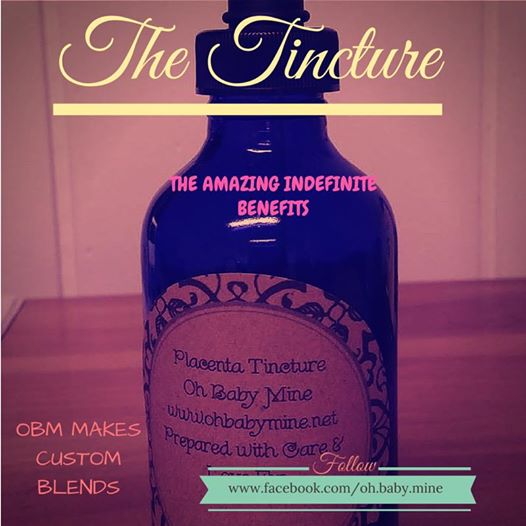|
I recently made a tincture for myself for stomach issues. I know how beneficial a tincture can be when a mom chooses to have one made from her own placenta. When you make a tincture from herbs or part of the placenta it is so concentrated from sitting in the solution for 6 weeks that the benefits of the tinctured item can be so magnified. I put together a few plants that would benefit my stomach issues, help with retaining extra fluids and to strengthen my immune system to keep my healthy for my clients. What I found was some awesome results. A few drops into my tea or under my tongue and washed down with a little water cleared up my horrible stomach ache. I am severely lactose intolerant, I also have colitis and IBS (I know it can be a volatile situation which is why I need relief).
My wanting to create this tincture stemmed from my making the placenta tinctures. Placenta tincture can be made by itself or in addition to your capsules. It will be around and in perfect condition long after your capsules are gone. By tincturing a small piece of the placenta in a high grade alcohol, you can prolong the benefits of your placental hormones. The tincture can be used in any time of trauma, transition, emotional distress and during menopause and ease your symptoms. Also, this tincture can be given to baby/children (see placenta encapsulation blog). In most situations mom is able to keep her own placenta to bring to a placenta specialist for it to be preserved in the way she desires. Even moms that have had multiples, minor labor issues (inductions, preemie, etc.) and of course, Cesarean Section should be able to own & take their placenta. As a matter of fact, having your placenta encapsulated when recovering from a C-Section or a birth with interventions may help speed up your recovery. You will have to sign a release. More about placenta preservation will be in one of our other blogs. A tincture is typically an alcoholic extract of plant or animal material or solution of such or of a low volatility substance. To qualify as an alcoholic tincture, the extract should have an ethanol percentage of at least 25–60% (50–120 US Proof). Sometimes an alcohol concentration as high as 90% (180 US proof) is used in such a tincture. In herbal medicine, alcoholic tinctures are made with various ethanol concentrations, 25% being the most common. The reason for the alcohol is to preserve the contents indefinitely. That means it can be stored on your shelf in a cool place (no need for refrigeration) as long as you need it.
0 Comments
Leave a Reply. |
AuthorLisa Kehoe. Mom of two very smart & talented children. She is an IBCLC (International board certified lactation consultant), Labor & Postpartum Doula. Archives
October 2015
|


 RSS Feed
RSS Feed